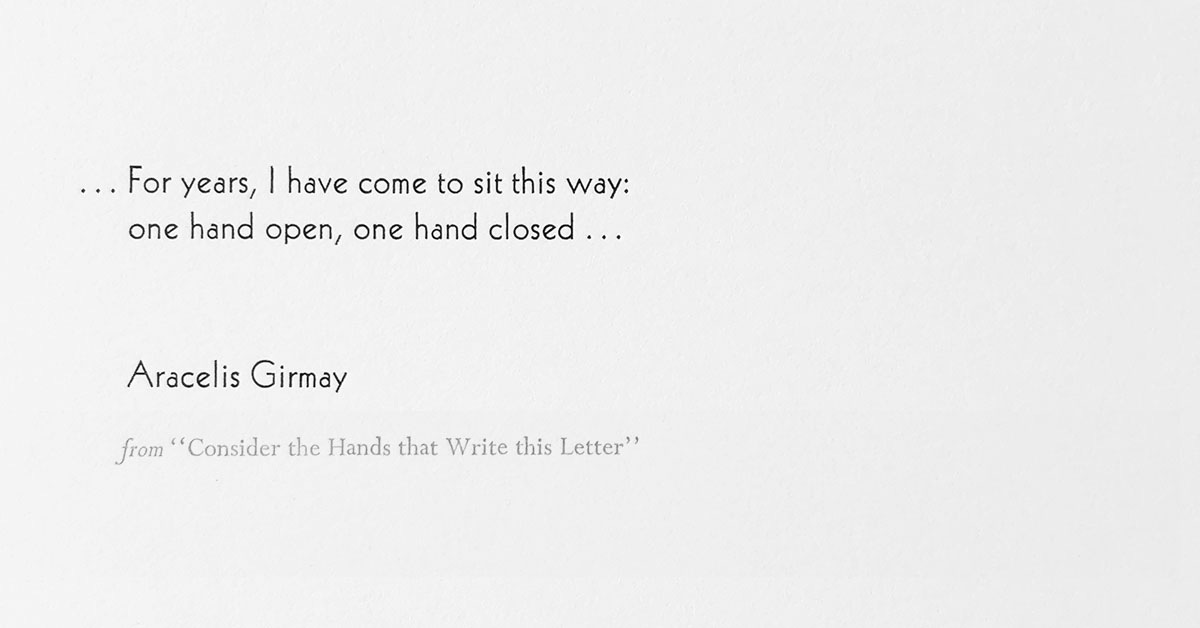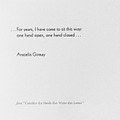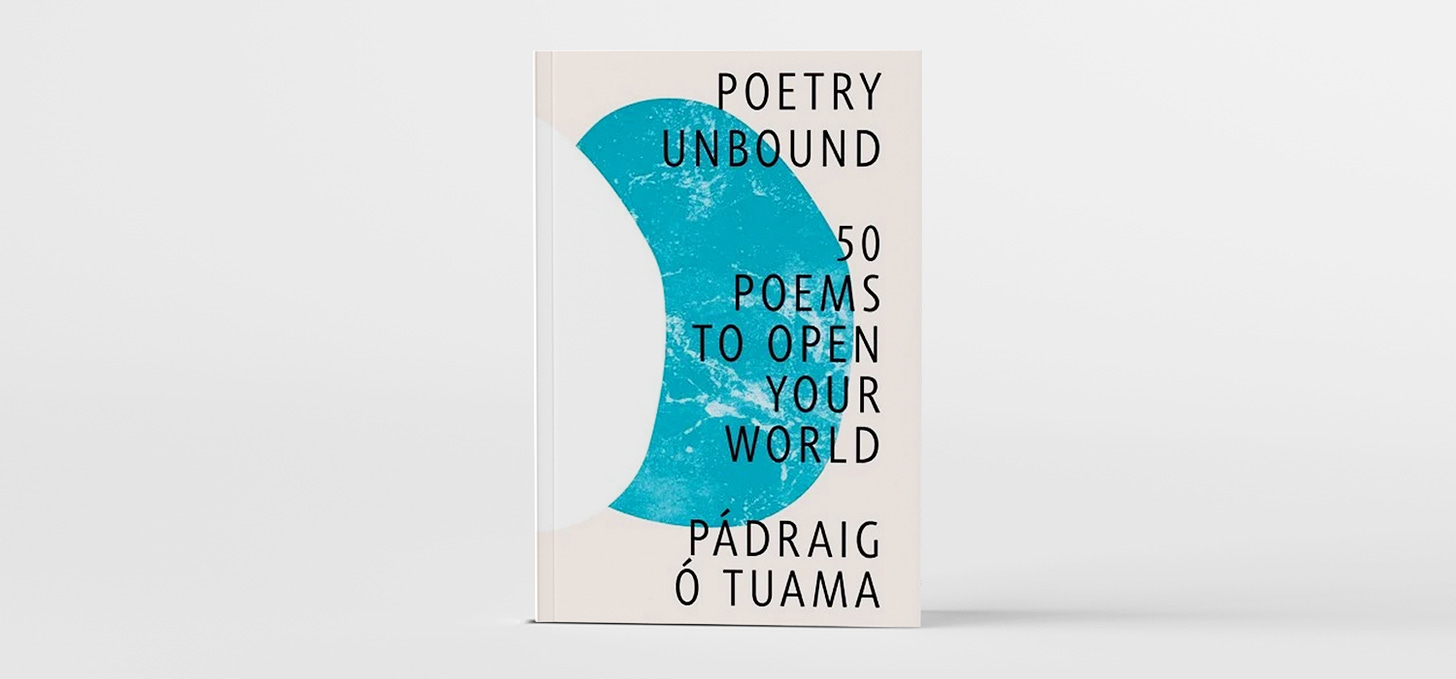The Art of Tension
“It is a joy to be hidden, but a disaster not to be found.” – D.W. Winnicott
Dear friends,
In Irish, the word fan means “stay” but the word fán (notice the acute accent over the á) means “wander.” I’ve often found such delight in the proximity of these words to the eye and ear. There’s a tension between them that has been true for me: a creature of habit who brings slippers and a good cup that keeps tea boiling hot wherever I go; a creature who has always traveled a lot. I was in Oxford last week, for a talk about poetry at Keble College, at the kind invitation of Matt Bevis whose glorious essay “Unknowing Lyric” was my introduction to him.
The story is worthwhile telling: I was in New York (another wandering) seeing Marie Howe (you’ll see her, yourself, in the Poetry Unbound book). She said, “Let’s go out for dinner with my friend Spencer and his English friend.” So we went to a Thai place that Spencer likes. (He’s a creature of habit, too. I’ve never met him anywhere other than that same restaurant.) Anyway, I knew the English friend taught poetry. And we were all chatting as the meal began. I said, “I read the most amazing essay in Poetry Magazine today, ‘Unknowing Lyric.’ It was art about art.” The Englishman to my left coughed, and said, awkwardly, “I’m afraid I wrote that essay.” What delight! I hugged him there and then. And the table floated up to the ceiling of the restaurant like a Chagall painting and the evening passed in delight: poetry, story, language, new friendships.
Anyway, there I was, in Oxford, because of his invitation after a friendship that began at a meal six or seven years ago. And I’m a man who stays and wanders at the same time. Fan and Fán.
“It is a joy to be hidden, but a disaster not to be found.” D.W. Winnicott
Poetry is filled with tension, and it’s filled with tension because life is, too. A poem that holds tension — of approaching and leaving; of grasping and letting go; of delight so pure you feel you might disintegrate; of the realisation of truth in a time of pain — is true because it is true to life. D.W. Winnicott, the child psychoanalyst, writing about the game Hide & Seek, said, “It is a joy to be hidden, but a disaster not to be found.” There’s tension there, too: that knife-edge of danger we are so drawn to.
We made an episode about Aracelis Girmay’s poem “Consider the Hands that Write this Letter” a few years ago (you’ll find a new essay about it in the book). It is a brilliant poem that considers the tension of writing, especially in the final turn of the poem where one hand is knocking on a trapdoor, the other hand is holding it closed. I feel like that when I’m writing, or reading, a poem sometimes. There is trespass and invitation. There is language and the unknown.

So, I’m curious:
What tensions do you hold when it comes to poetry?
My colleague Krista Tippett often says that she needs to feel strong enough in order to read poetry because it is so capable of opening you up.
I’ll look forward to meandering through your comments and hearing the tensions that you hold as you come to poetry. These are tensions of life, for me: tensions that are often unresolved, and hold the sweet ache that makes art alive and electric, approachable and abandoned, capable of making and unmaking.
See you in the comments, friends, with all of your tensions.
Pádraig (the fan and the fán)
PS - The good people of RTÉ Radio 1 had me on to chat about the book, and released the audio recording last week. No paywalls, firewalls, or walls of any variety to impede a listen, if you’d like.
Friends, we’ll have details and registration for the December 6th book launch in next week’s newsletter. In the meantime, I’m delighted to announce that I’ll be joined by the magnificent Lorna Goodison — Former Poet Laureate of Jamaica, winner of the Queen’s Medal for Poetry. This will be an hour of celebration, invitation, and of course, plenty of poetry, starting at 3 pm PT / 5 pm CT / 6 pm ET / 11 pm GMT. We’d love to see you there.
While you wait, have a listen to one of Lorna's poems featured in Season 3 of Poetry Unbound.





When I read this question I thought immediately to latest poem on Poetry Unbound, "What's Kept Alive," and my reaction to it. I loved the poem and the discussion about it. It's beautiful, the love in it is so full and deep. I could feel the joy of that love. And I also felt achingly sad. I was lying in bed as I listened, and tears rolled into my ears.
And that, for me, is the fundamental tension-- between joy and deep sorrow. Strangely, perhaps, the doorway to joy is most accessible to me through sadness and sorrow. It's the tragedy in my life, that I carry every day, that has broken my heart open. I'm learning to welcome the joy through the cracks. The poems I love the most bow deeply to both joy and sorrow. They hold that tension.
the tension that arises in me as i plunge into poetry is a tension similar to that of pulling back a slingshot... with every word, i feel myself being pulled further and further back until finally, i am launched into an unimaginable place, a journey, a wild beginning... sometimes it is pleasant, other times it is not.
it’s like the tension one might feel before sitting to meditate. you’re nervous about what thoughts might arise and what new things you might discover about yourself.